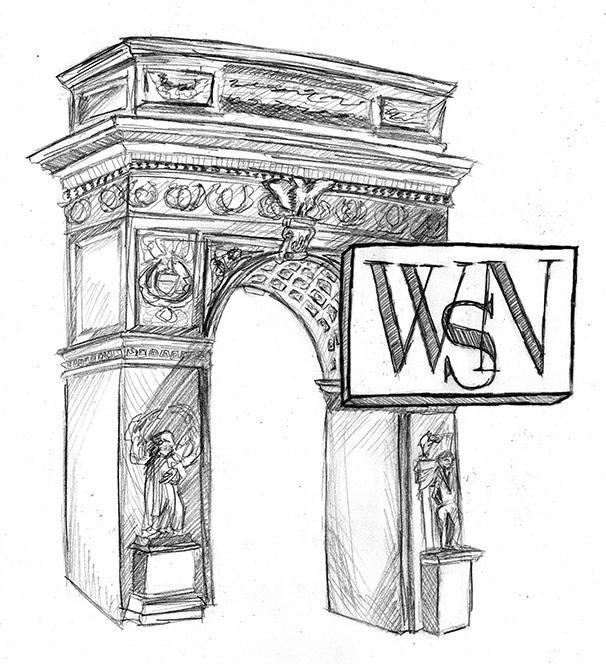Over the break, the nation’s headlines were filled with the name Steinhardt. Michael Steinhardt — a retired hedge fund manager and namesake of NYU’s largest graduate school thanks to a $20 million donation — faces multiple accusations of sexual harassment and inappropriate comments made toward men and women in various organizations. The Steinhardt Foundation quickly responded to the allegations, dismissing most of them as “purposeful distortions” of Steinhardt’s “well-known sense of humor.” Make no mistake, Steinhardt’s behavior is far beyond an acceptable form of humor; it is predatory sexual harassment and a direct abuse of his position. Steinhardt’s behavior also directly contradicts NYU’s policy toward sexual misconduct.
Having a school named after a notorious sexual harasser disrupts the “safe learning, living, and working environment” NYU seeks to maintain. For this reason, the university should remove Michael Steinhardt’s name from the School of Culture, Education and Human Development. This decision would be a major step for the university in showing it cares more about the well-being of its students than the desires of its donors.
NYU needs to look at who it wishes to immortalize and celebrate. The administration has already faced criticism for the Elmer Holmes Bobst Library, which is named after an accused pedophile and anti-Semite. Now, with the Steinhardt school and building, NYU will once again face the choice of whether to condemn or acclaim these abusers.
Many activist movements today push for individuals to question the normalization of abusers and harassment. In the article outlining Steinhardt’s transgressions, one woman stated that after Steinhardt’s demeaning comments about women’s bodies or inappropriate requests for sex, people would act as though nothing happened or laugh along. This is often the story in examples of abuse, from Harvey Weinstein to R. Kelly — many people knew what was occurring, yet chose to do nothing. In this way, victims are not only subjected to the actual harassment itself, but also forced to feel the isolation of their peers’ apathetic responses.
This is why shows of solidarity with victims are vital. Doing nothing supports a broken status quo, one that allows the power to rest with abusers and those who contribute to a culture of harassment. NYU may wish to keep Steinhardt’s name to avoid making a controversial statement. But there is no avoiding the push to recognize and condemn powerful figures who have fallen from grace. We saw it when students at Yale University successfully called for the removal of John C. Calhoun’s name from numerous buildings due to his promotion of slavery, and when people across the country called for the removal of Confederate statues for similar reasons.
As much as this controversy is a part of a larger problem, ultimately this situation provides an opportunity for the university to take a stand. The original report by the “Jewish Week” highlights the clear consequences of Steinhardt’s behavior. Sources claimed that after the initial complaint from a woman in 2015, Steindhart was no longer allowed to meet with female employees unaccompanied. A spokesperson for Steinhardt has denied these allegations, but in terms of NYU students, that means the namesake of the Steinhardt school could not meet with 59 percent of its students unaccompanied; this is fundamentally unacceptable. Before these most recent allegations, there was little national attention. But we can no longer plead ignorance.
NYU’s policy toward sexual misconduct, sexual assault and sexual exploitation explicitly states the administration’s commitment to “fostering a community in which such conduct not tolerated.” For this most obvious reason, NYU has no reason not to rename NYU Steinhardt. To truly abide by its own explicitly outlined policy, NYU can and should choose to rename the Steinhardt school. In the age of the #MeToo movement, we are undergoing a regeneration of our culture — in short, we are finding out that there are lots of problematic, powerful people with their names plastered on things and places we love and respect. But rather than standing by and allowing these contradictions to exist, we should stand against them.
Update, March 27: A spokesman for Michael Steinhardt quoted in The New York Times reached out to WSN and said the claims about Steinhardt not meeting alone with women from Hillel are incorrect. This information has been added to the article.
Opinions expressed on the editorial pages are not necessarily those of WSN, and our publication of opinions is not an endorsement of them.
A version of this article appeared in the Monday, March 25, 2019, print edition. Email the Editorial Board at [email protected].


























































































































































